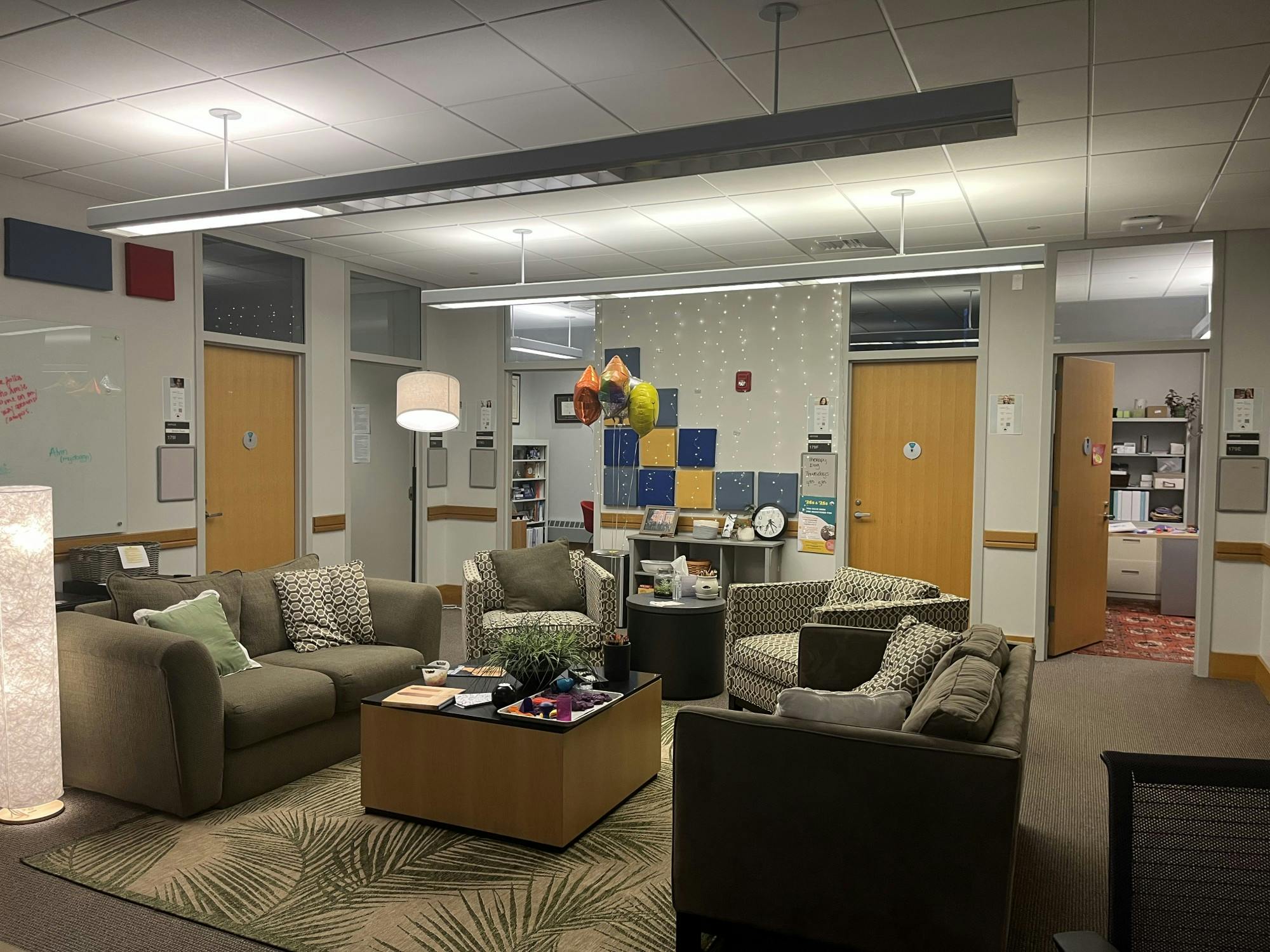On Oct. 10, the College is slated to announce a “mental health plan” in collaboration with the JED Foundation, a mental health and suicide prevention non-profit organization. According to Dartmouth News, the plan will include increased mental health training, mentorship programs and effectiveness tracking metrics, alongside other initiatives.
The upcoming mental health plans come nearly three weeks after College President Sian Leah Beilock’s Sept. 22 inaugural address, in which she proclaimed wellness promotion to be “the single greatest service we can do for our students, our faculty, and our staff.”
Provost David Kotz ’86 said the upcoming JED Foundation mental health plan includes initiatives to solve current issues associated with accessing mental health care. He added the management of all mental health-related resources will fall under the purview of a new “Chief Health and Wellness Officer,” who will report to the president as a member of senior leadership.
According to Kotz, the plan is aimed at helping students develop wellness-related skill sets; increasing awareness of mental health resources; evaluating academic and social structures on campus in relation to mental health; expanding clinical capabilities and constructing a new Student Health and Wellness Center. The timeline for the full enactment of the plan is estimated to be around five years, he added.
“[The plan is] about building [students’] personal resilience and strengths to manage their wellness,” Kotz said. “And related to that is helping students help other students, to ensure that when a student is struggling, all the rest of us will be there. We want the community to be supportive of students who might be having mental health challenges.”
The current mental health landscape at Dartmouth is not without its problems, according to the Dartmouth Student Mental Health Union co-president Adithi Jayaraman ’24. According to Jayaraman, some students’ lack of knowledge or initiative to use the resources provided remains a concern and that in order to spread awareness on campus, she is currently developing an SMHU ambassador program.
“There’s so many people who are struggling silently and [yet] there [are] so many resources,” Jayaraman said. “[There’s] this gap between resources and need and utilization.”
Another barrier to resource utilization is an ongoing campus culture of stigma around mental health, according to Ulgen Yildirim ’24.
“I don’t think the culture and the stigma around [mental health] has changed as much,” Yildirim said. “I feel like I know a lot of people who are struggling mentally because of [how] Dartmouth is set up and the admin and even professors are not well aware of that.”
The College’s existing student wellness resources are divided among two primary centers of care: the Counseling Center at Dick’s House, which provides clinical healthcare options, and the Student Wellness Center, which emphasizes personal wellness through an “upstream, proactive approach to supporting students,” SWC director Caitlin Barthelemes said.
Several recent developments in the College’s mental health policy have been conducted through the Counseling Center or the SWC. Students, staff and faculty received a free subscription to the meditation app Headspace in September 2022. In addition, the SWC has been responsible for the College’s Sexual Violence Prevention Project, a student-oriented training series, announced in January 2015.
“We have a whole variety of single drop-in sessions, weekly programming, all the way to … the robust four-year Sexual Violence Prevention Project,” Barthelemes said. “We also have things in between, like four-session courses to introduce you to mindfulness or self-learning modules around how to improve your sleep.”
Furthermore, in September 2022, the College announced that enrolled students would be able to access Uwill, a teletherapy service, at no cost.
The variety of resources available has had varying degrees of success. Uwill has received over 1319 registered students since its launch in November 2022, according to College media relations strategist Jana Barnello. The online therapy program mitigates inequitable access to mental health care for different students, according to SMHU co-president Caroline Conway ’24.
“Some students might go home to families that don’t believe [in] mental illness and aren’t willing to seek care for it,” Conway said. “Others might go home to parents who are very supportive, but don’t have the financial means to pay a therapist. Having Uwill available no matter where you are as long as you have an active Dartmouth email is a really big fundamental change.”
Though students may not employ available resources for various reasons, other issues arise within the scope of the resources themselves. Scott Sorensen ’26, who attended two Uwill appointments, said that “nothing came out of them.”
“The therapists were nice, but it’s hard to upload your entire history to somebody in 30 minutes,” Sorenson said. “It was very short term, and in-person therapy is hard to get on campus [without a diagnosis].”
Additionally, College community members’ free subscription to Headspace allows students to practice mindfulness and decompress in any setting. Lucy Coleman ’26 said she uses the app “almost every day,” adding that it has “revolutionized” her life.
Vicqueline Escalona ’24 said the availability of several new wellness resources has increased since the beginning of the COVID-19 pandemic. Escalona said she and other seniors have noted this change, adding that she believes there has been a change in “efficiency” since her freshman year in 2020.
“It seems more accessible [and] more talked about than when we first arrived, which made it easier for me to start therapy this year,” Escalona said. “I tried my sophomore year, and then junior year, but it was always so complicated that I just gave up. Now it seems as if there [are] way more paths to getting help.”




